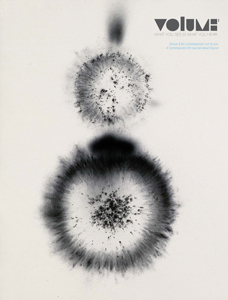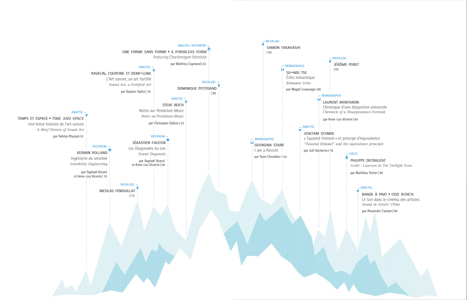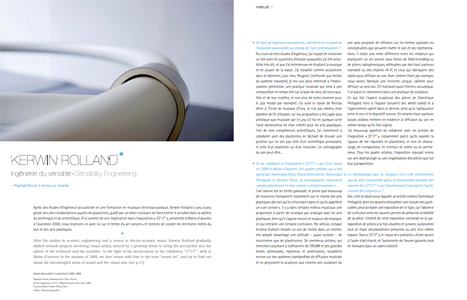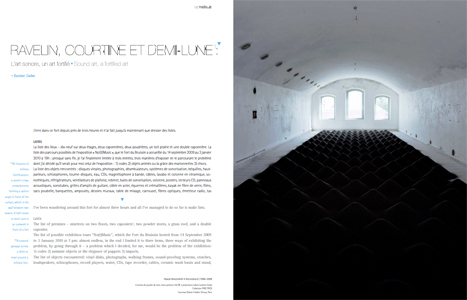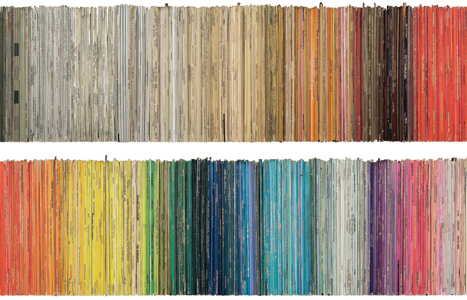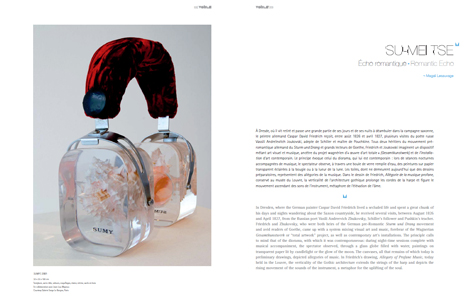First issue of the contemporary art journal about sound, devoted to the complex relationships between visual and sound forms, both in contemporary art and history.
Featuring: analysis (“A Brief History of Sound Art” by Rahma Khazam; “Sound Art, a Fortified Art” by
Bastien Gallet;
“Notes on Steve Reich's
Pendulum Music” by Christophe Gallois; “A Formless Form” by Mathieu Copeland;
“Sound in Artist's Films” by
Alexandre Castant, etc.) / “focus” on
Philippe Decrauzat's
Leslie, by Matthieu Poirier, monographs (
Laurent Montaron,
Su-Mei Tse, Georgina Starr, Joachim Schmid) / interviews (Sébastien
Faucon, Kerwin Rolland) / artist's interventions (Nicolas Fenouillat,
Dominique Petitgand,
Jérôme Poret, Samon
Takahashi)...
This first issue questions and challenges the often blurred boundaries between sound art and contemporary art
presenting sound as a medium or simple referent. It also broaches the figurative dimension of sound through its
pictorial, photographic and sculptural representations, as distinct – by way of their silence – from strictly
acoustic and sonic considerations. Some articles explore its time-related dimension, especially through the
recording factor and the exhibition format. All areas of interest which give a glimpse of the scope of the
intermingled territories of sound and the visual arts.
Volume –
What You See Is What You Hear is the first magazine devoted to
sound issues in art, and to the complex relationships between visual and sound forms, both in contemporary art and history.
Volume is neither a musical magazine, nor a magazine about sound art; rather, it sees sound from the angle of
the visual arts.
The history of relations between sound and art is not recent, but the past few years have seen
many more works, exhibitions, publications and other events whose aesthetic and theoretical content attests to a
growing interest in this medium, and the various ways it is used. Through a broad range of critical and artistic
contributions, it is
Volume's intent to represent a platform observing and analyzing this dynamic, while at the
same time being sure to re-position it within a historical perspective.
The seven issues published between 2010 and 2013 now constitute a concluded series.



